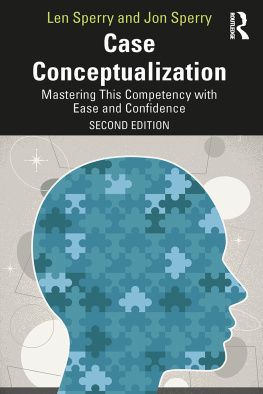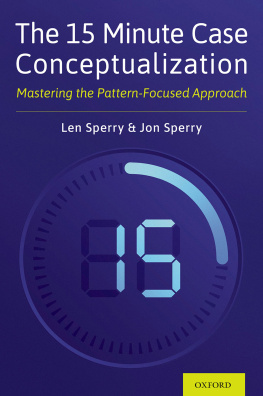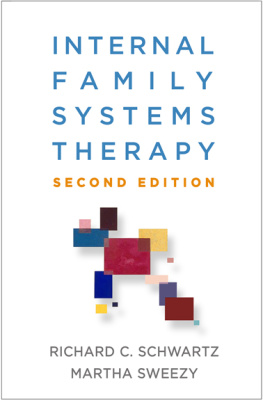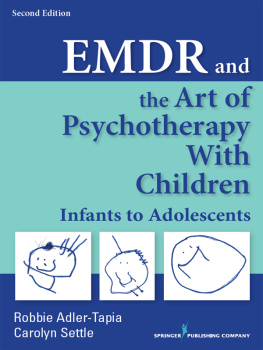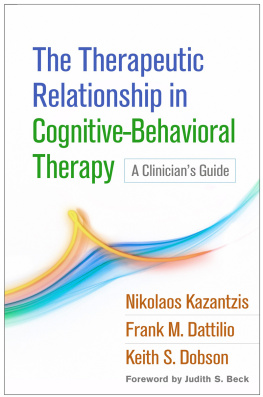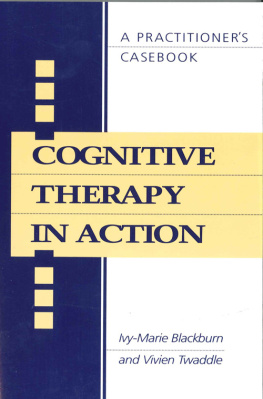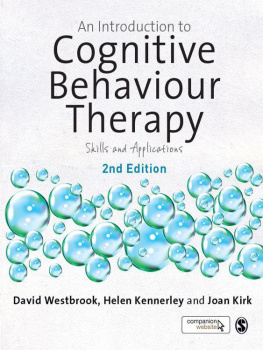While the first edition of Case Conceptualization was recognized as the best training tool for learning this indispensable clinical skill, this revised edition is even better! The authors have made it not only more clinically useful but also enjoyable to read. Packed with case studies, commentaries, worksheets, and guidelines, it will continue to be the go-to text for students and practitioners.
Dr. Debbie Joffe Ellis, Adjunct Professor, Clinical and Counseling Psychology, Columbia University
Case Conceptualization
Integrating recent research and developments in the field, this revised second edition introduces an easy-to-master strategy for developing and writing culturally sensitive case conceptualizations and treatment plans.
Concrete guidelines and updated case material are provided for developing conceptualizations for the five most common therapy models: Cognitive-Behavioral Therapy (CBT), Psychodynamic, Biopsychosocial, Adlerian, and Acceptance and Commitment Therapy. The chapters also include specific exercises and activities for mastering case conceptualization and related competencies and skills. Also new to this edition is a chapter on couple and family case conceptualizations, and an emphasis throughout on trauma.
Practitioners, as well as graduate students in counseling and in clinical psychology, will gain the essential skills and knowledge they need to master case conceptualizations.
Len Sperry, MD, PhD , is a Professor at Florida Atlantic University, USA. He has taught and written about case conceptualization for 35 years. His research team has completed eight studies on case conceptualization.
Jon Sperry, PhD , is an Associate Professor of clinical mental health counseling at Lynn University, USA. He teaches, writes, and researches case conceptualization, and conducts workshops on it worldwide.
Case Conceptualization
Mastering This Competency with Ease and Confidence
Second Edition
Len Sperry and Jon Sperry

Second edition published 2020
by Routledge
52 Vanderbilt Avenue, New York, NY 10017
and by Routledge
2 Park Square, Milton Park, Abingdon, Oxon, OX14 4RN
Routledge is an imprint of the Taylor & Francis Group, an informa business
2020 Taylor & Francis
The right of Len Sperry and Jon Sperry to be identified as authors of this work has been asserted by them in accordance with sections 77 and 78 of the Copyright, Designs and Patents Act 1988.
All rights reserved. No part of this book may be reprinted or reproduced or utilised in any form or by any electronic, mechanical, or other means, now known or hereafter invented, including photocopying and recording, or in any information storage or retrieval system, without permission in writing from the publishers.
Trademark notice : Product or corporate names may be trademarks or registered trademarks, and are used only for identification and explanation without intent to infringe.
First edition published by Routledge 2012
Library of Congress Cataloging-in-Publication Data
Names: Sperry, Len, author. | Sperry, Jonathan J., author.
Title: Core competencies: mastering this competency with ease and confidence/Len Sperry, Jon Sperry.
Other titles: Case conceptualization. | Core competencies in psychotherapy series (New York, N.Y.)
Description: 2nd edition. | New York, NY: Routledge, 2020. | Series: Core competencies in psychotherapy | Preceded by Case conceptualization: mastering this competency with ease and confidence/Len Sperry, Jonathan J. Sperry. 2012. | Includes bibliographical references and index. |
Summary: Integrating recent research and developments in the field, this revised second edition introduces an easy-to-master strategy for developing and writing culturally sensitive case conceptualizations and treatment plans. Concrete guidelines and updated case material are provided for developing conceptualizations for the five most common therapy models: CBT, psychodynamic, biopsychosocial, Adlerian, and Acceptance and Commitment Therapy. Chapters also include specific exercises and activities for mastering case conceptualization and related competencies and skills. Also new to this edition is a chapter on couple and family case conceptualizations, and an emphasis throughout on trauma. Practitioners, as well as graduate students in counseling and clinical psychology, will gain the essential skills and knowledge they need to master case conceptualizationsProvided by publisher.
Identifiers: LCCN 2020004517 (print) | LCCN 2020004518 (ebook) | ISBN 9780367251925 (hardback) | ISBN 9780367256654 (paperback) | ISBN 9780429288968 (ebook)
Subjects: MESH: Psychology, Clinical | Clinical Competence | Psychotherapymethods
Classification: LCC RC454 (print) | LCC RC454 (ebook) | NLM WM 150 | DDC 616.89dc23
LC record available at https://lccn.loc.gov/2020004517
LC ebook record available at https://lccn.loc.gov/2020004518
ISBN: 978-0-367-25192-5 (hbk)
ISBN: 978-0-367-25665-4 (pbk)
ISBN: 978-0-429-28896-8 (ebk)
Typeset in Times New Roman
by Deanta Global Publishing Services, Chennai, India
Contents
with Gerardo A. Casteleiro
I first encountered Len Sperrys work when I read his 1992 book, Psychiatric Case Formulations . I remember being impressed by the books elegance and economy of style, and how Sperry and his co-authors distilled complicated ideas to their bare essentials, all while creating a practical, hands-on manual. The book shaped my views and research on case conceptualization, and I have consulted it regularly since. The first edition of Case Conceptualization: Mastering This Competency with Ease and Confidence continued these qualities and they are present as well in this significantly updated and timely second edition. These books fill a gap between the consensus view among experts in psychotherapy that case conceptualization competency is an essential skill, and the relative lack of formal training to assist therapists gain competence.
The essential message in the second edition is that a sound and comprehensive case conceptualization has both high explanatory and high predictive power, and for this reason contributes significantly to treatment effectiveness. Further, learning to develop such a conceptualization is readily achievable and employed in clinical practice. An explanation of the problems that have led a client to psychotherapy is not only a gift to the client in that it helps make sense of what may otherwise be a chaotic, confusing, and alienating set of experiences, but it is also a gift to the therapist, who, with the explanation in hand, has a powerful tool to guide treatment. High predictive power means that the conceptualization is forward looking. It anticipates problems in therapy before they emerge, and should lead to improved outcomes.
In a systematic and easy-to-follow manner, Sperry and Sperry aid the reader in learning how to develop compelling explanatory and highly predictive case conceptualizations. Key components of case conceptualization are described, including critical clinical information, precipitants, predisposing and maintaining factors of the clients problems, a statement of maladaptive patterns, cultural influences, and a thorough approach to planning treatment based on the foregoing information. The addition of new chapters addressing case conceptualization in couples and family therapy, in third-wave treatments, and in treatment for traumatized clients adds to the timeliness and utility of the book. Worksheets provided by the authors facilitate the development and organization of this information.

